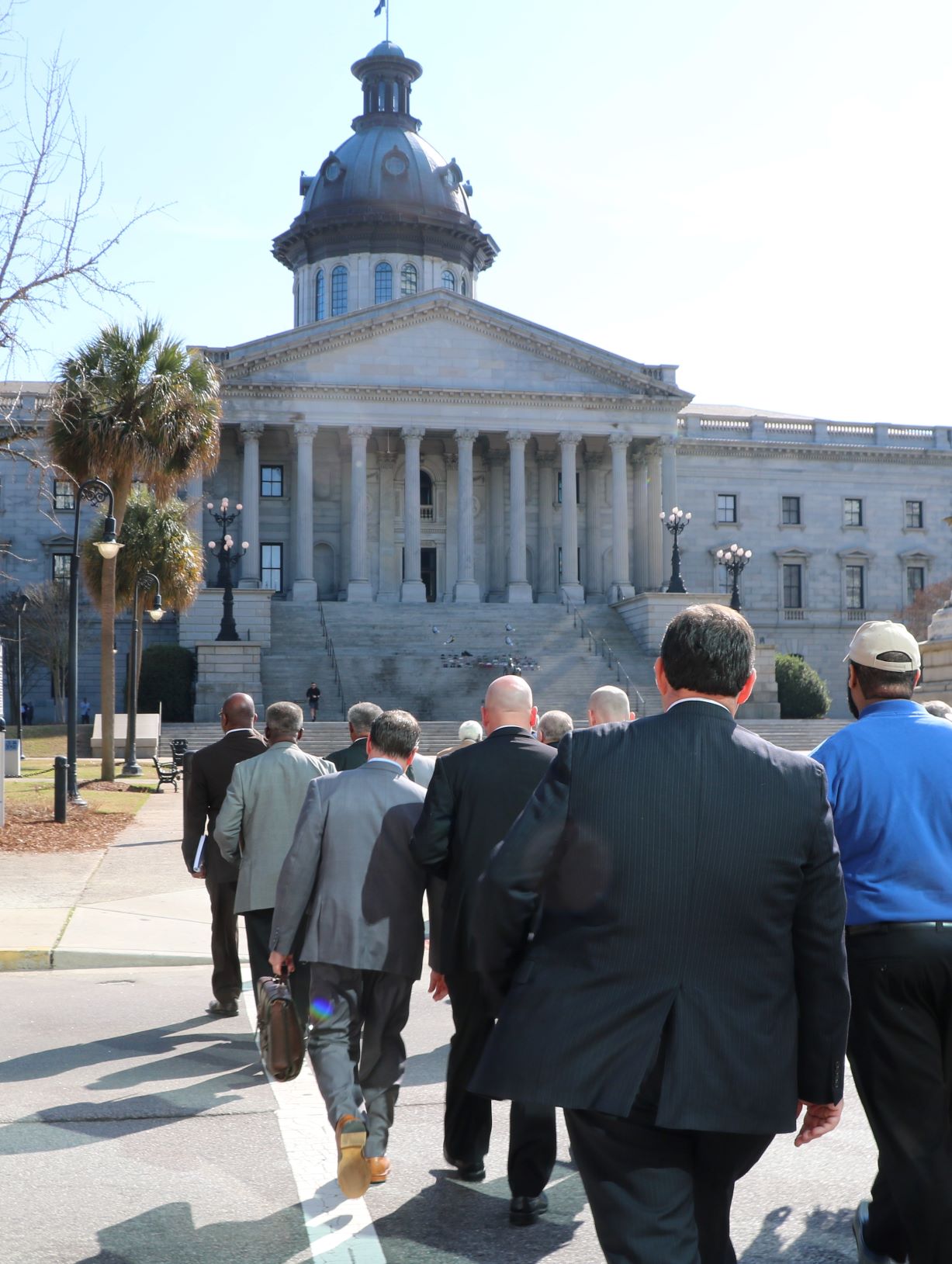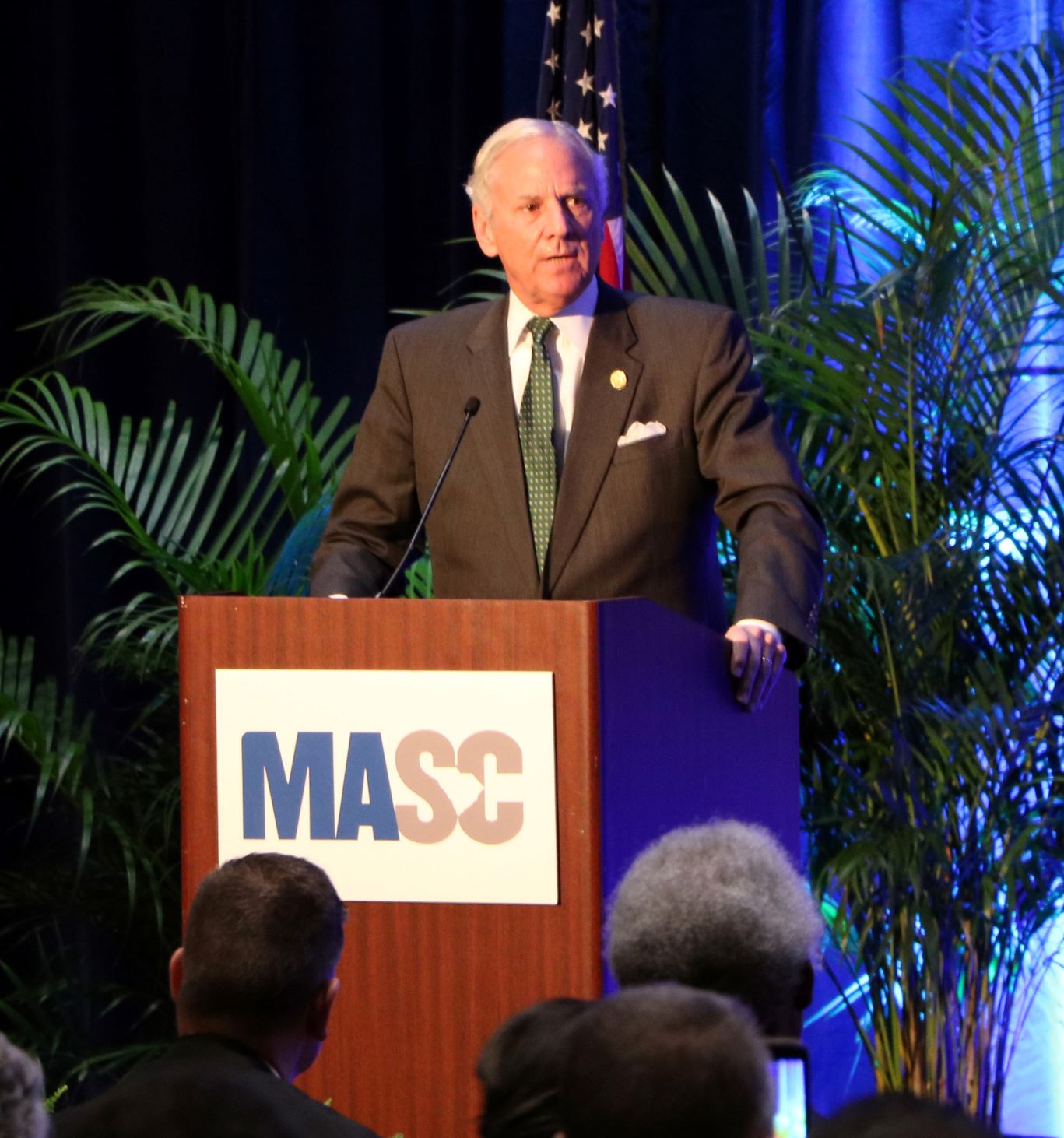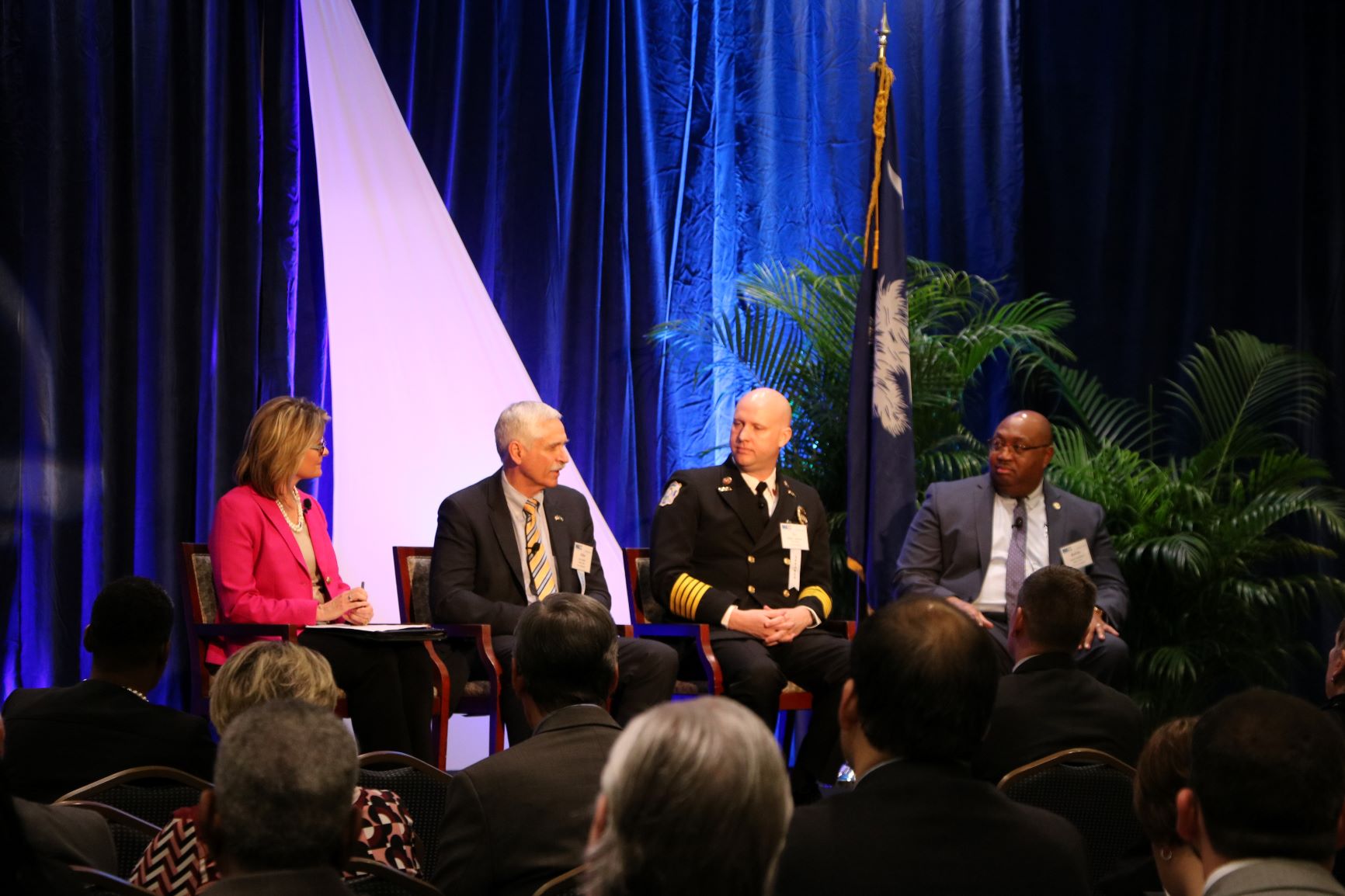City and town leaders can make their voices heard at the State House in large part because they have the credibility of working directly with residents to solve problems every day. Columbia Mayor Steve Benjamin became the first to articulate this theme when he welcomed the more than 530 people who gathered in Columbia for Hometown Legislative Action Day on February 5.

"We have the responsibility of representing cities and towns — natural organisms, living, breathing organisms — and we have to listen to all of our citizens," he said. "We are on the ground with them every single day, at the grocery market, at church or at the synagogue. I tell people I get good advice at the traffic light, whether I want it or not. We are on the ground. It's where the rubber hits the road."
Municipal Association Board of Directors President and Florence Councilmember Octavia Williams-Blake emphasized the value of coordinated advocacy from the local leaders who work on "the front lines" in everything from sanitation to public safety and recreation.
"We do not have the luxury of refusing to compromise. In South Carolina, from the State House to city hall, it is everyone's responsibility to work together to improve the quality of life for every resident," she said.
Gov. Henry McMaster gave the keynote address at HLAD, celebrating the state's economic growth while calling for local officials to support his education reform proposals, including a $100 million Rural School District Economic Development Closing Fund.

Gov. Henry McMaster described his education reform
proposals during Hometown Legislative Action Day.
"If we collaborate, if we communicate and cooperate, we can think big," he said. "Remember, there's no power in a small idea. Think big or go home."
Advocacy Initiatives
The Municipal Association's advocacy team briefed attendees on the remarkable progress seen in the General Assembly for the Association's Advocacy Initiatives, although they cautioned that individual efforts from cities and towns are always needed, and success requires ongoing, patient work in the background. Director of Governmental Affairs Tiger Wells likened the process to watering bamboo for years before it first shoots up.
Local Government Fund predictability
H3137 would have the fund mimic the way the state budget is forecast, so that the fund will match the growth rate estimated for General Fund, up to 5 percent. This could help city councils gain a sense of how much funding is available before completing their budgets.
Flexibility with hospitality and accommodations tax revenue
Both the House (H3132) and Senate (S217) introduced legislation to allow cities and towns to use this revenue for flooding and drainage at tourist destinations. Melissa Carter, research and legislative liaison, noted that the flexibility bill that passed the House last year unfairly provided it only for Horry and Georgetown counties.
"I daresay that there are probably only a handful of cities in South Carolina that do not have some form of flooding or drainage issues," she said.

Heather Hoopes-Matthews led a panel discussing crisis communication with Florence Police Chief Allen Heidler, Conway Fire Chief Phillip Hendrick Jr. and Darlington Police Chief Kelvin Washington.
Reducing wait times for new hires at the Criminal Justice Academy
At a time when police departments across the state are reporting recruitment difficulties, the Criminal Justice Academy cannot graduate officers fast enough to replace those leaving the profession. Wells described the possibility of moving away from a funding model where more than 60 percent of the academy's funding comes from fine and fee revenue to one where there is a recurring line item in the state's budget. This could allow the academy to broadcast some classes to new hires across the state, reducing the amount of time the recruits would need to study in Columbia and significantly increasing the rate of graduations.
